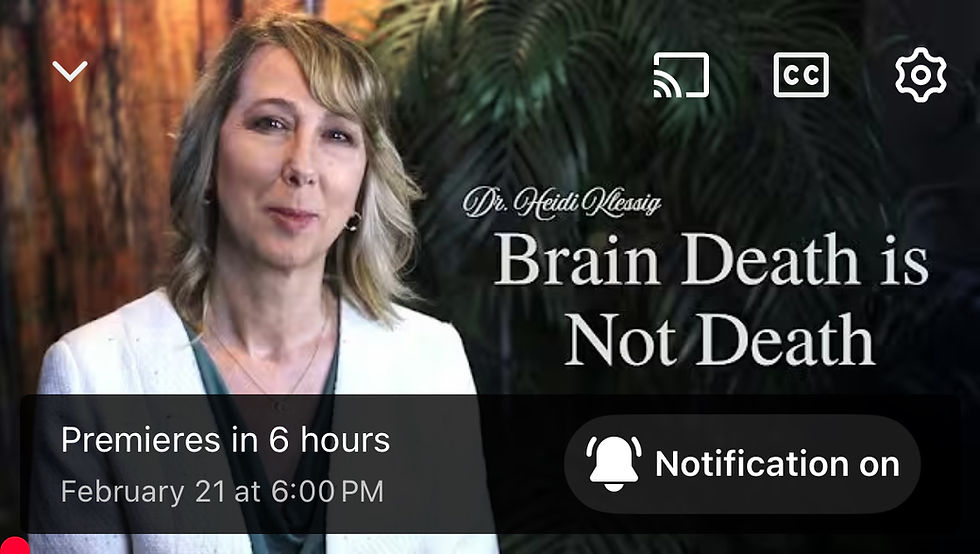Human Nature from Calvin to Edwards: A Book Review for Pastors
- Christopher W. Bogosh

- May 28, 2023
- 3 min read
Updated: May 30, 2023
Paul Helm served as the J. I. Packer Professor of Philosophical Theology at Regent College, Vancouver, and before that position, was a professor of history and philosophy of religion at King’s College in London. In Human Nature from Calvin to Edwards, Helm demonstrates his erudition and expertise in history, philosophy, and Christian theology.
His book is a survey of theological anthropology in the Reformed tradition. While it is a matter-of-fact analysis of the historical development of theological anthropology in the Christian tradition, it also shows how Reformed anthropology is rooted more in Plato and Aristotle than the apostle Paul. Thus, Reformed anthropology, like most traditional Christian anthropologies, is more Greek than Hebrew.
Helm’s book has a lot to offer the reader. He surveys a range of theological and philosophical writers in the Western church from 1550 to 1750. Helm provides the backdrop, influences, and context for the formation of their thought from medieval and patristic theologians. His book addresses the relationship between the body and the soul, faculty psychology, and moral agency. He also alludes to topics relevant to our present day, especially regarding the relationship of the brain and mind/soul/spirit and the image of God in humans. In this sense, the book underscores the plight of neglecting ecclesia semper reformanda est in the Protestant tradition.
“According to the unanimous verdict of Reformed theologians of this era,” writes Helm, “to possess the intellect is to possess the image of God” (79). “Man is a rational animal,” Helm goes on, “as Aristotle and Calvin each maintained” (80). Of course, Aristotle believed “the soul is the form of the body” (29). Calvin, however, while affirming the intellect testified to the image of God in humans, followed Plato. “In the case of Plato,” Helm comments, “the soul is the bearer of the human self, and the body is its ‘prison house,’ as Plato said and Calvin frequently repeated” (29). According to the Reformed view of anthropology, if the intellect is lost, the image of God is not present, and humans are no better than animals.
Some people cannot exercise their intellect today (at least as far as we can tell), but they still have beating hearts, circulation, aerating lungs, and other bodily processes. Have they lost the image of God? Many contemporary Christians believe they have. Either knowingly or unknowingly, they base their arguments on philosophical materialism or monism (i.e., the modern notion that the human brain is the locus of life and, therefore, the image of God). The irony is that theologians and philosophers in the period Helm is covering rejected any view that challenged the existence of a soul.
The atheistic philosopher of the seventeenth century, “Thomas Hobbes, was dismissed by them precisely because his materialism meant that he did not share the prevailing dualistic mind-body assumptions,” writes Helm (xiii). The expansion of this debate goes beyond 1750 and Helm’s goals, but it’s essential to understand the development of dualistic and monistic anthropologies to interact with modern advances in psychology, psychiatry, and neurology. After reading Helm’s book, I recommend Oxford University Press’s The Mind for an overview of mind-body issues up to the present.
For the most part, Christianity has taken a 180-degree turn, especially when it accepts brain death as death (monism) and justifies the murder of humans by using outdated Christian anthropologies rooted in Plato and Aristotle. Today in hospitals across the United States, humans are reduced to non-humans if the intellect is no longer detected (death by a neurological standard). Then they’re legally butchered like animals, and their body parts are distributed to others deemed more worthy to live on. If Aristotle is followed, the form of the body (soul) is no longer present with the body, even if the non-responsive person’s heart is beating. If Plato is followed, the soul has been emancipated from the prison of the still biologically living body. According to both camps, “Johnny is in heaven with Jesus, not with his body”—no, he’s not! He’s still with his beating heart and aerating lungs, and who knows what is happening in his mind. If Calvin, Aquinas, and Augustine were with us today, I don’t think they would approve of the abovementioned practice. I already know Paul wouldn’t because he taught death as the absence of cardiopulmonary function and resurrection as the reanimation of life in the body as a whole.
Helm has an appendix dedicated to “Herman Bavinck’s Psychology,” an early twentieth-century Dutch theologian. In Reformed Dogmatics, Bavinck writes: “Nothing in a human being is excluded from the image of God” (2:555). God creates his image bearers to declare his existence, not to exalt human intellect, and he fulfills his purposes in the creation through them; that’s the biblical view of the image of God—nothing more, nothing less.




Comments